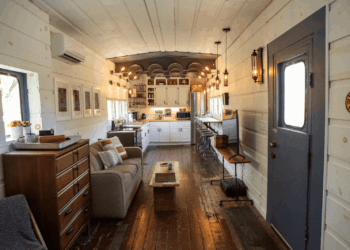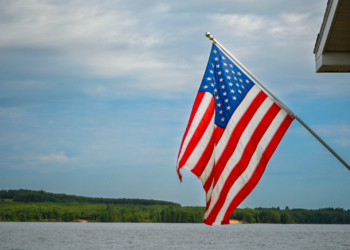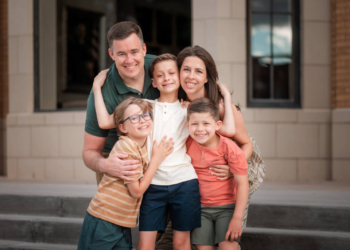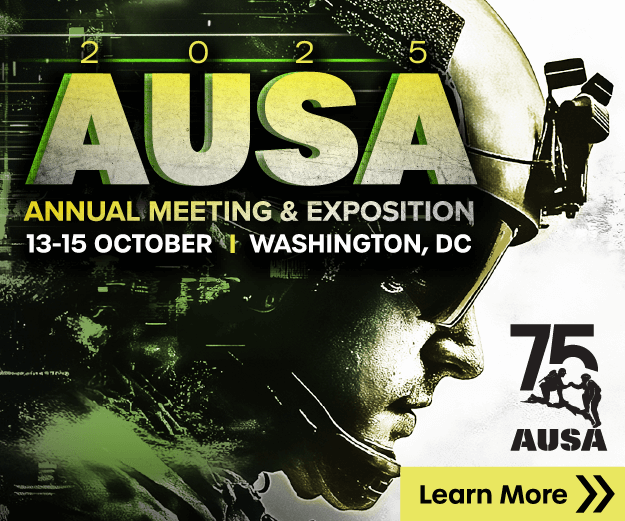At 30-something weeks pregnant, I boarded a Space-Available (Space-A) flight at Incirlik Air Base, Turkey, with my then-7- and 3-year-old children in tow. My goal was to avoid the Storknesting Program, which would have required me to leave my children with their dad – who was working 24-hour shifts in ambulance services – and travel to Landstuhl, Germany, to give birth alone.
Military members and families endure a lot, and for me, the effort to fly Space-A from Turkey to Fort Campbell, Kentucky, before reaching the no-fly stage of pregnancy was worth the planning. From Kentucky, I would drive to Tennessee, where I could deliver my baby with support from my in-laws.
The three of us made it to Spain before being notified the aircraft would no longer accept passengers. I panicked, not knowing how long we’d be stranded in Spain with my due date quickly approaching. Thankfully, we were able to get on another flight the next day. A few weeks later, my daughter was born at a hospital in Nashville, Tennessee, and at just 2 weeks old, she made the return journey after receiving her passport.
Space-A is a valuable benefit that allows military families to save on travel costs, but it often comes with unpredictability. From canceled flights and unexpected detours, to hilarious moments and hard lessons learned, the following tales from our readers capture how sometimes the stories are more memorable than the destination itself. (Responses have been edited for length).
The odyssey
Sarah, a Navy veteran and spouse, flew Space-A with her five children to meet her husband during his deployment port call in Athens, Greece. Her family had lived overseas before, so she was experienced in traveling Space-A alone with her kids. It didn’t seem like too much of a trek from Virginia Beach, Virginia, “but looking back, it still gives me a little PTSD.”
“We drove from Virginia Beach, to D.C., missed the previously wide-open Ramstein flight, and waited nine hours at the USO, where I scrambled to rearrange all our plans while the kids watched movies and ate free junk food.”
The journey soon became “a 54-hour odyssey across four countries” with flights, cabs, trains, buses, a ferry, a walk, a “Home Alone-style sprint through a train station” and final car ride “(complete with vomit and an unexpected construction detour).”
The family eventually made it to Greece for a “glorious” reunion before embarking on their return journey, which Sarah dubbed “Odyssey 2.0.”
“It took weeks to decompress after, but we walked away with a lifetime of memories and lessons.”
Pack lightly but keep your sense of humor
Krista is an Army spouse who has flown Space-A on several occasions. Her advice is to have a good sense of humor and flexibility.
“We timed a month-long Australia trip with the landing of the incoming Space-A plane, only to find out they decided not to take any passengers back to the U.S. That was exciting in the worst way.
“Another time, we were on a flight with actual medical patients on board, with IVs hooked up. It’s a little off-putting to be sitting there in your resort-wear like ‘thanks for the ride…’”
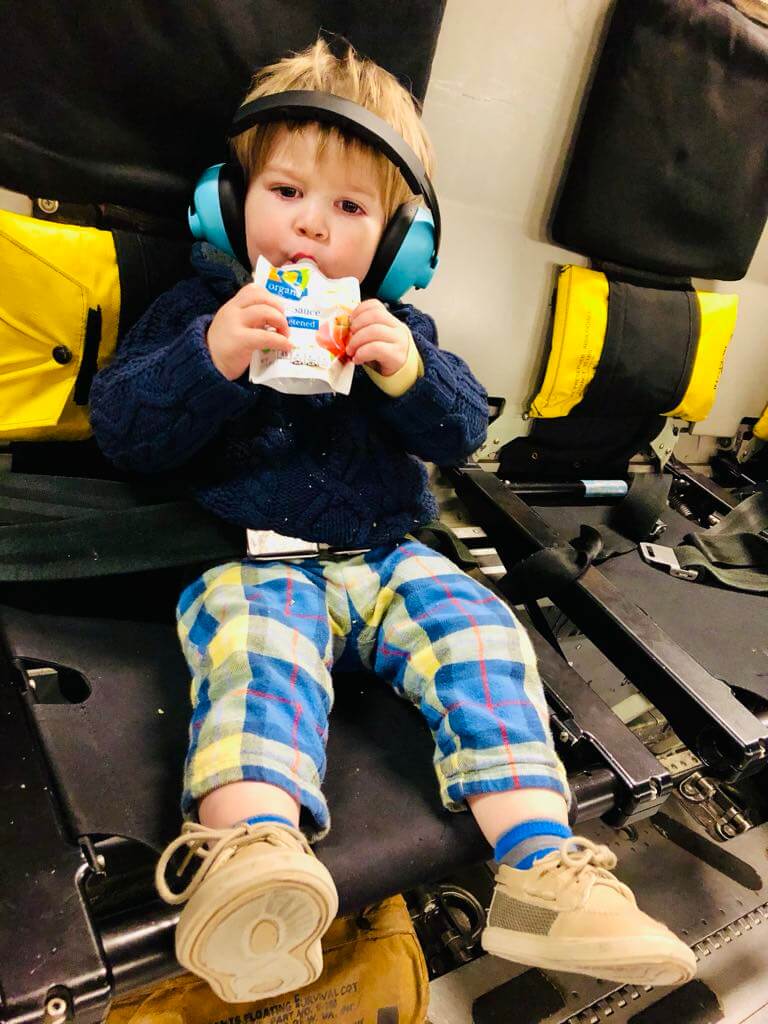
One time, the family tried to catch a Space-A flight to get home after an unexpected Colorado stop.
“We put on as many clothes as possible from our suitcases while standing at the terminal because they don’t limit what you weigh, but they do care what your luggage weighs.” After all that work, the family learned they weren’t taking any freeloaders.
Although it can be challenging, Krista acknowledged the crew can be a plus!
“[One time] it was so cold, the crew of a refueler passed out their own sleeping bags for us to stay warm.”
Priority seating
Leslie is an Army spouse who said potential Space-A travelers should keep in mind that seats on a flight are prioritized by “Air Transportation Eligibility” categories. As retirees, Leslie’s in-laws are Category VI, or the last priority to get a seat when space becomes available on flights. She recalls her in-laws coming to visit her family in Ramstein, Germany.
“They stayed here a week, and their trip was cut short as they were tracking flights back. In total, they spent one week with us and one week’s worth of waiting to get on a flight.”
While it can be a benefit, Leslie cautions that Space-A can be a gamble.
“This is my take: If you’ve got the time and are okay with hotel stays on either end if you don’t get on a flight, then it works. How many days extra and how much money that adds up to — and if it’s worth it — will depend on you.”
Pro tips
Melissa is an Army spouse who said she only encountered “minor hiccups” when she traveled Space-A with her family of four. In her experience, they have been able to leave on their planned day, and when they are ready to return, they simply wait for flights with ample available seats.
“It can be exhausting waiting, but [it] is also very rewarding that we have this amazing option available for us to use at our leisure.”
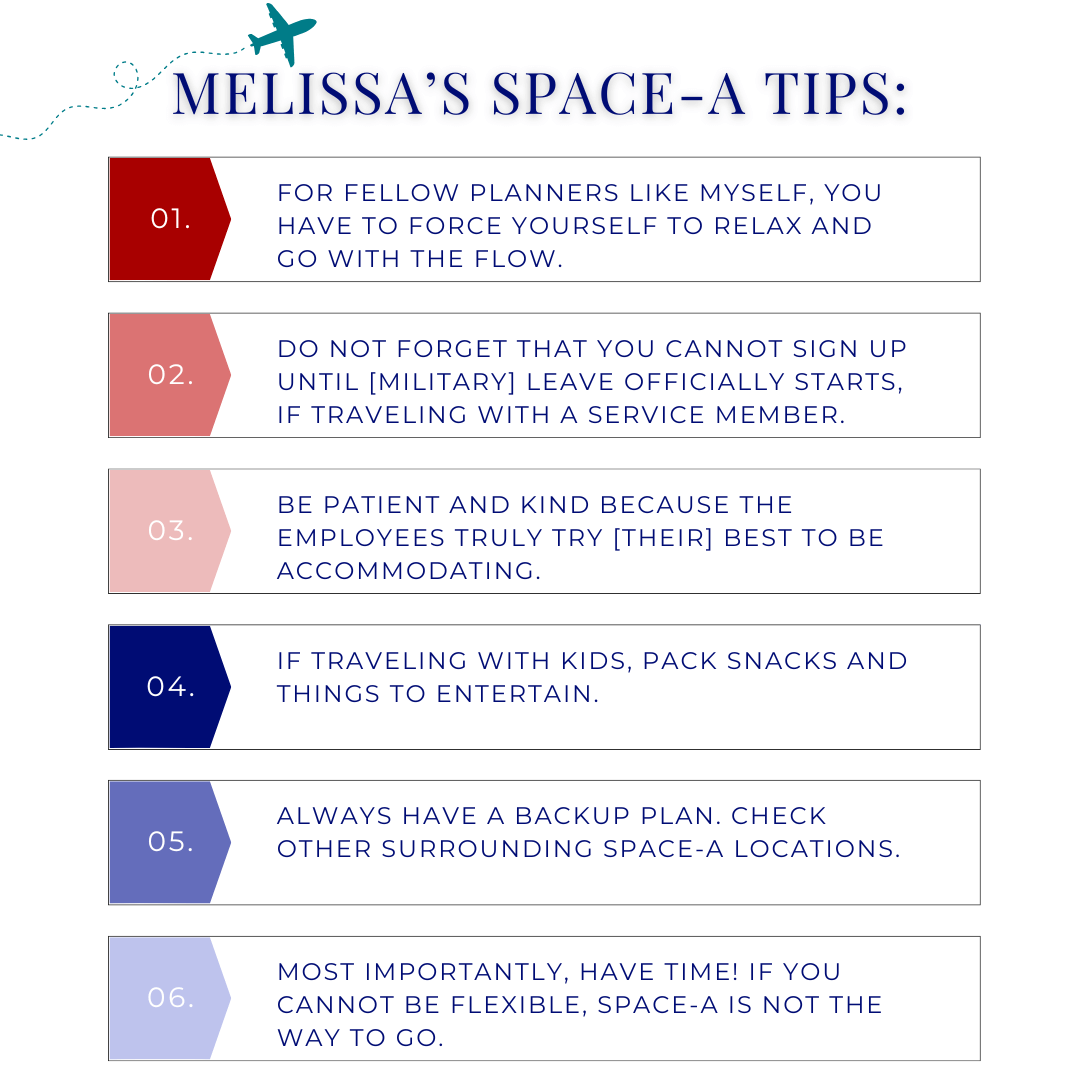
Learn more about Space Available Travel, Air Transportation Eligibility or to find your nearest Air Mobility Command terminal here.
Read comments






















